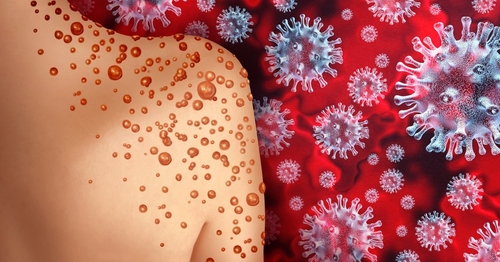
A collection of 14 U.S. senators wrote to Senate Majority Leader Charles Schumer (D-NY) and Minority Leader Mitch McConnell (R-KY) last week to request funding for the monkeypox outbreak response be included in any upcoming legislative package.
Designated a Public Health Emergency (PHE) earlier this month, the outbreak had spawned more than 11,000 cases in the United States as of Aug. 12, 2022. According to the Centers for Disease Control and Prevention (CDC), the first case in the outbreak of this historically rare disease began on May 18, 2022.
“The current outbreak in the United States is the largest in the world by case count in the current global outbreak—which has been declared a Public Health Emergency of International Concern by the World Health Organization (WHO)—and the largest in the nation’s history,” the senators wrote. The WHO designation was granted nearly two weeks before the U.S. emergency declaration. “Nevertheless, we recognize that many experts have stated that the current number of cases is likely an undercount due to a gap in provider knowledge, limited access to information and testing, as well as social stigma that may increase reluctance to seek medical care.”
Much as in the case of COVID-19, this has put tremendous pressure on the public health system to identify, inform and address cases. The senators agreed that the system remains underfunded. While they lauded recent efforts to create an emergency supplemental funding bill for the COVID-19 pandemic and other emerging diseases, they specifically asked for monkeypox PHE funding. Without funding, health care workers otherwise ready to tackle response lack the resources needed to scale that response and counter viral spread, in the lawmakers’ estimation.
“MPV testing efforts are currently encountering processing and collection barriers that have led to underreporting of cases and poor data to aid the federal government in directing necessary resources in an appropriate manner,” the senators said. “Additionally, as both a prophylaxis and treatment, acquiring and administering vaccines swiftly is crucial to stemming the spread of MPV and protecting all communities across the United States. Finally, clinics and providers are facing additional barriers in clinical services supplies, education for providers to properly identify MPV, vaccines, testing supplies, contact tracing, and community outreach to bolster our public health response to MPV and ensure that accurate and adequate information is reaching our constituents.”




